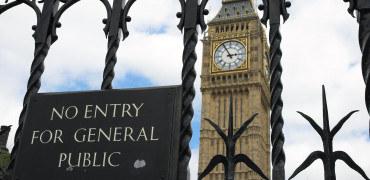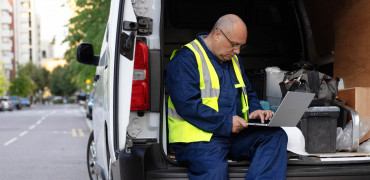The government’s recent decision to extend the Boiler Upgrade Scheme (BUS) came as a surprise to many people given that it is widely considered to have underperformed since its launch in May last year.
The incentive scheme, which provides consumers in England and Wales with up to £6,000 to help fund an installation of an air source or ground source heat pump, was originally set to come to an end in 2025 but will now run for at least a further three years.
However, despite £150m of grants being made available in the first year, figures show that only about a third of the funds have so far been claimed and the Treasury has confirmed that it will claw back any money left in the pot.
Would money not be better spent insulating the homes of those who have been hardest hit by the rising cost of heating?
Appearances can be deceptive
Members of parliamentary committees have not been slow in pointing out some of the flaws in the scheme, not least of which is the minimal time and effort devoted to raising public awareness about its existence.
At the risk of being too cynical, perhaps one of the reasons why BUS has received ministerial backing is that it gives the appearance of an enterprising government initiative backed with significant finance, while ultimately only a fraction of the millions pledged actually reach consumers.
Who needs it most?
BUS has also faced criticism for using taxpayers’ money to reward householders whose income means that they can hardly be called the poorer and most vulnerable members of society.
There is an argument that most of those who have been able to take advantage of the subsidy may well have invested in a heat pump anyway.
So would money not be better spent insulating the homes of those who have been hardest hit by the rising cost of heating?
While having a grant that is available to everyone, whatever their income level, may reduce administration costs and help to avoid controversy over eligibility, it hardly seems fair that those struggling to make ends meet are effectively subsidising people who may own multiple properties.
Rather than giving the same offer to everyone, could there not be a sliding scale based on Council Tax Bands or the value or the property that is benefiting from the installation of a heat pump?
Raising awareness
Any unclaimed subsidies from the scheme could also be used to help raise awareness levels, both of BUS itself, and the benefits of investing in a heat pump.
With conflicting information available from various vested interests, it is not surprising that many potential buyers are uncertain about whether to take the plunge and swap out their existing oil or gas system.
Truly independent and knowledgeable advice is hard to come by, so funds might be better spent training installers and educating end-users.
Given that most householders will only have had experience of heating their home with a high temperature system, there remains a need to highlight the energy-saving benefits of gently maintaining consistent and comfortable room temperatures rather than snuggling up to scolding radiators.
What’s in a name?
It may sound obvious, but perhaps the biggest single improvement that could be made to the Boiler Upgrade Scheme would simply be to change its name.
It seems a very odd decision to put together a grant scheme designed to help raise the level of demand for heat pumps which makes no reference to the favoured technology in its title.
What was the problem with calling it the Heat Pump Incentive Scheme or something similar?
At least then it would say what it does on the tin!
Chris Jones is editor of PHAM News



